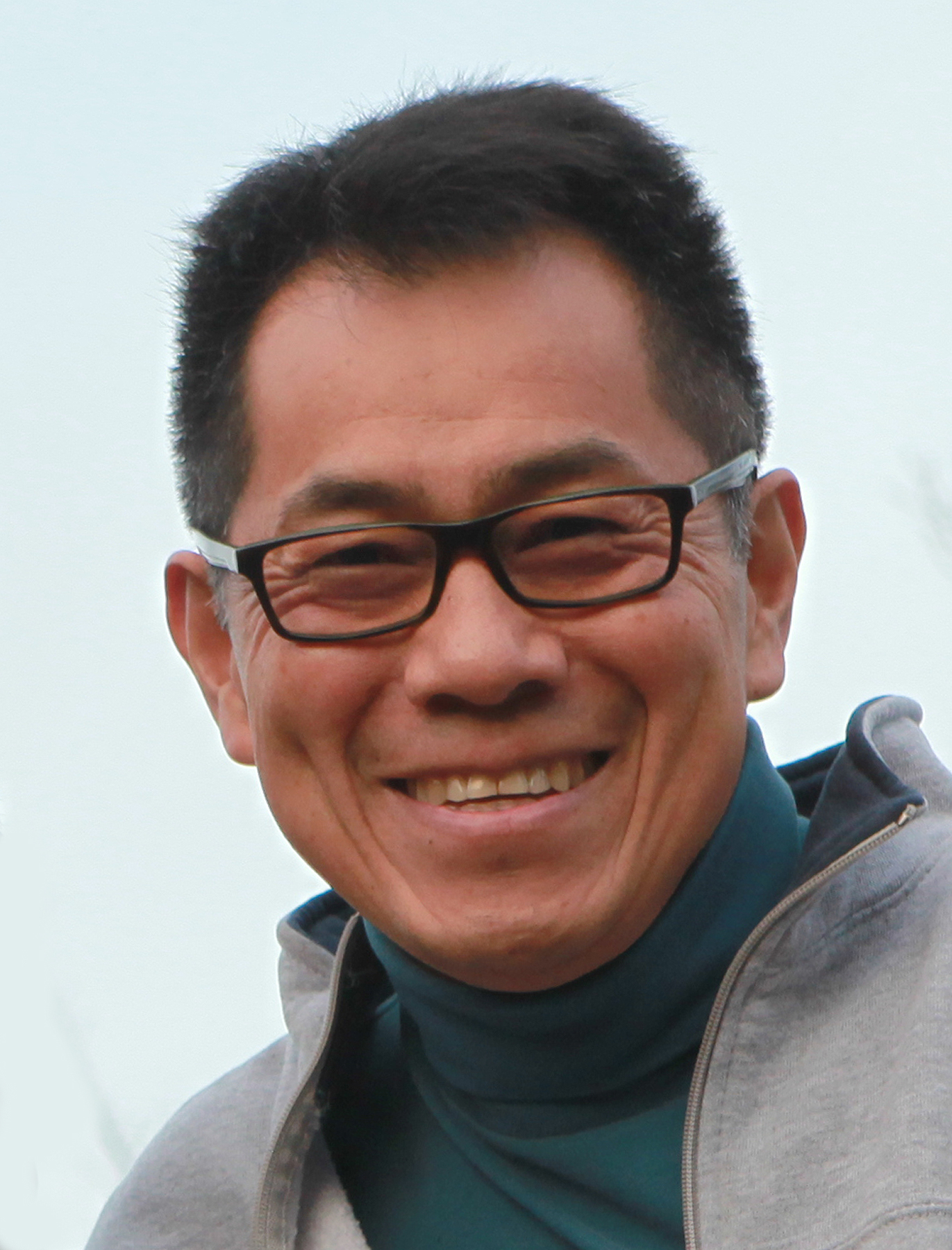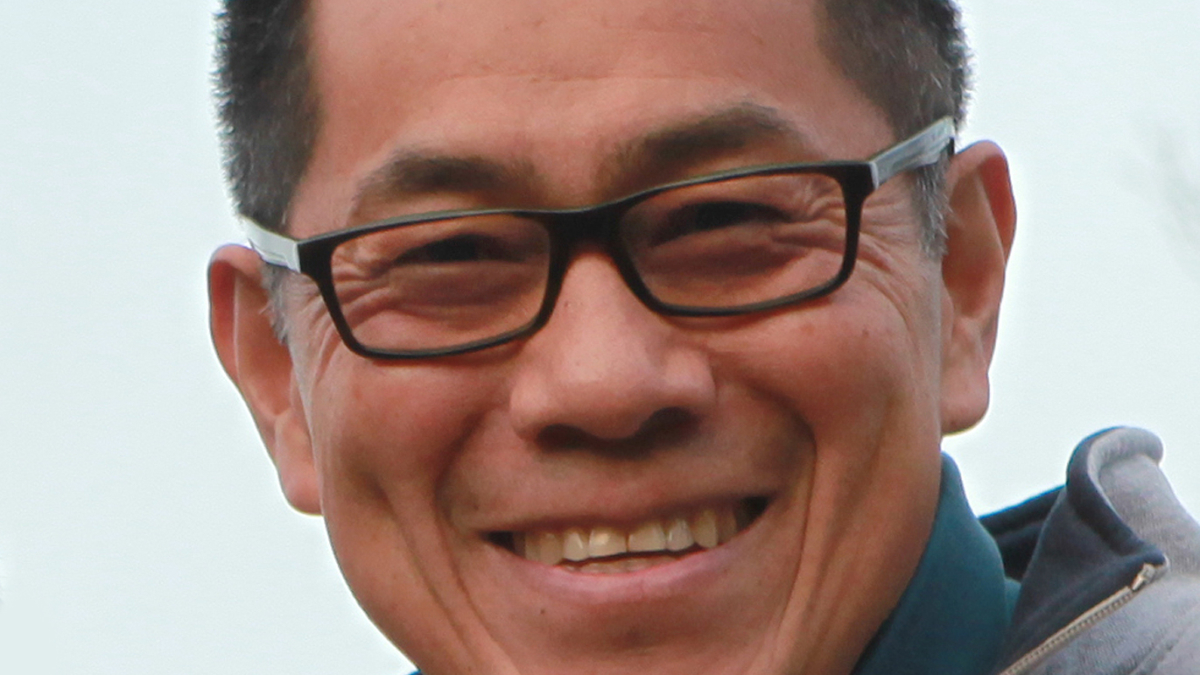
By Lindy Leong
Reprinted courtesy of the 2015 Los Angeles Asian Pacific Film Festival ©Visual Communications
In a career spanning over four decades, multi-award winning director Arthur Dong continues to explore themes that reflect the issues and ideals that matter most to him. Festival Program Committee Member Lindy Leong explains why today’s generation of Asian Pacific American filmmakers should play close attention to his example.
In his nearly four decade long career, documentarian and historian Arthur Dong continually redefines over and over again the idea of the independent filmmaker. His work and the way he goes about making it epitomize the virtues (that is, the best of the best qualities) possessed by one who has devoted his life to a brand of social issue-driven media making rarely emulated or as broadly encompassing in its scope. To assign him a label or a series of labels would undermine his craft. As this year’s Festival Spotlight Artist, we honor him–as first and foremost, a trailblazer, an innovator, a cultural barometer, and finally, as a role model for the independent filmmaker at large. With an oeuvre bookended by FORBIDDEN CITY, U.S.A., his 1989 critically acclaimed documentary on the Chinese American nightclub scene in WWII-era San Francisco, and now by his latest project, THE KILLING FIELDS OF DR. HAING S. NGOR, in which he reinvigorates–for a contemporary audience–the significance of Dr. Ngor’s brief yet impactful foray into Hollywood as well as his subsequent activism on behalf of his homeland of Cambodia–we can glean a solid sense of an answer to the question: why does Arthur Dong still matter?
Growing up Asian American in California, in and around Los Angeles and San Francisco as a child of Chinese immigrant parents, I can relate to many things Arthur Dong may have experienced which formatively shaped his worldview and his investments in filmmaking. Though we are separated by a generation, certain things persist that have impacted both of our experiences from racial prejudice and violence; social inequalities in minority communities and groups; the perpetual need for public policy reform; and the slow but forward progress in governmental infrastructure related to promoting racial and sexual equalities. The battles he successfully waged to combat these social injustices fit into the ongoing war my current generation carries on for those coming after. Therefore, viewed in this continuum, his influence and imprint matter more than ever in a no-so-post-racial American culture and society.
A veritable chameleon when it comes to tackling one social issue after another, Dong allows the work in question to stand on its own and to communicate its intended message. Beginning from the Best Oscar Documentary Short Nominee SEWING WOMAN (1982), his highly personal short film about his mother’s emigration from China, and LIVING MUSIC FOR GOLDEN MOUNTAINS (1984), an homage to his beloved music teacher, to his docs on homosexuality and discrimination, to recent, large scale features as HOLLYWOOD CHINESE (2007) and his public television projects, Dong brings to the forefront the significant questions in need of being asked of his chosen subjects, and lays them out for audiences to interpret and grapple with in their realities. Those watching parts of Dong’s works in sequential order will notice this progression, in his seamless presentations of a constructed objectivity that is predicated upon the facts available and made self-evident in the archival materials and primary sources he has so carefully assembled.
As most independent filmmakers can attest, the desire to create and execute one’s personal vision in earnest surpasses expectations of most material rewards. Doing so in an economy perpetually hostile to individuality and its idiosyncrasies (because it won’t sell to the general public) would take a strong personality and voice. In this regard, Dong’s enduring testament persists in his foresight to set up his own company, DeepFocus Productions (www.deepfocusproductions.com), in order to develop, produce, and distribute his work from the very start of his career. By doing so, he has exerted better control over how his storytelling and creative output could be consumed and interpreted. He also future-proofs his ability to generate a revenue stream on his own terms. Independent filmmakers today facing heady decisions of whether to collaborate with studios for easier returns, or resorting to self-fundraising via crowd funding platforms like Kickstarter and Indiegogo, can look to Dong as an exemplar and true pioneer of the spirit of independent filmmaking.
Making himself and his creative output accessible online today allows, by default, greater potential for self-branding–a desirable achievement by any self-respecting indie filmmaker. Buying his STORIES FROM CHINESE AMERICA DVD set from his production company website, or paying a streaming fee to view online via Vimeo, you could access his early works: A TOISAN TRILOGY (a compilation of SEWING WOMAN, LOTUS, and LIVING MUSIC FOR GOLDEN MOUNTAINS), and his feature documentaries FORBIDDEN CITY, U.S.A. and HOLLYWOOD CHINESE. As a student taking college courses in Asian American studies and media studies, his documentary work on APA subjects remain invaluable and richly informative. As a film and media educator teaching cultural and diasporic studies, critical race theory, and Asian cinemas, I use clips of HOLLYWOOD CHINESE as a resource in the classroom. A keen and meticulous researcher of archival repositories and materials, Dong exemplifies the filmmaker-as-historian par excellence. During the research process for this contemporary work on APA and Chinese media representation in American film history and culture, he discovers what is now known as the earliest Chinese American feature film, THE CURSE OF QUON GWON (ca. 1916-1917), directed by a Chinese American woman, Marion E. Wong. In collaboration with the Academy Film Archive, the extant reels have undergone a restoration and this long-lost film is now available to all inquiring minds and the general public for research and educational purposes. A testament to Dong’s broad and comprehensive query into the role of Asian Americans in Hollywood, this unexpected but important find effectively confirms their active participation during the industry’s nascent years.
His storytelling stamp bears its indelible mark on a very local and intimate level with his contribution to Visual Communications, the media arts non-profit and the presenting organization of The Los Angeles Asian Pacific Film Festival. In 1990, Dong was commissioned by VC to write and direct CLAIMING A VOICE: THE VISUAL COMMUNICATIONS STORY, a one-hour documentary commemorating the grassroots organization’s first two decades cultivating and producing media works by and about Asian Pacific Americans. Incorporating clips from over twenty VC-produced films with key oral histories and interviews, Dong constructs the narrative of how the alternative media organization came into being during a time of tumultuous conflict and change on multiple fronts–civil rights, women’s rights, and Third World underdevelopment, among others. When I first got involved with VC a decade ago, I viewed his film as an introductory primer for the organization’s mission and long-term vision. In Dong’s capable hands, the organization’s story on and off the screen stands as an important historical and evidentiary document in support of its continued sustainability and development. Flashforward a quarter of a century later, his latest film THE KILLING FIELDS OF DR. HAING S. NGOR delves into the life of the Academy Award Best Supporting Actor and Cambodian genocide survivor, and offers up the little-known, tragic side of the story of Ngor’s remarkable life–yet another testament to truth being more incredible than fiction. Dong’s interpretation of Ngor’s life less ordinary recalls the tenor of early VC productions in its deep-seated humanism.
A full circle completed: Dong returns to VC and the Los Angeles Asian Pacific Film Festival to present his latest project after an illustrious, distinctive career. Academically inclined and gifted, an astute filmmaker driven by social justice and cultural preservation issues and concerns, Dong continues to lead dialogues in both academic and industry circles with his craft. Independent filmmaking as art and industry can boast no better role model than Arthur Dong, who, whether championing APA representation and issues, LGBTQ rights and equality, and/or a slew of various social issues impacting our contemporary society, extols the very highest caliber of what it means to make meaningful art.
Lindy Leong is a film and media educator, archivist, programmer, and unapologetic cinephile based in Los Angeles. She considers New York City her spiritual home and supports the work of Asian Cinevision and the New York Asian American International Film Festival.

